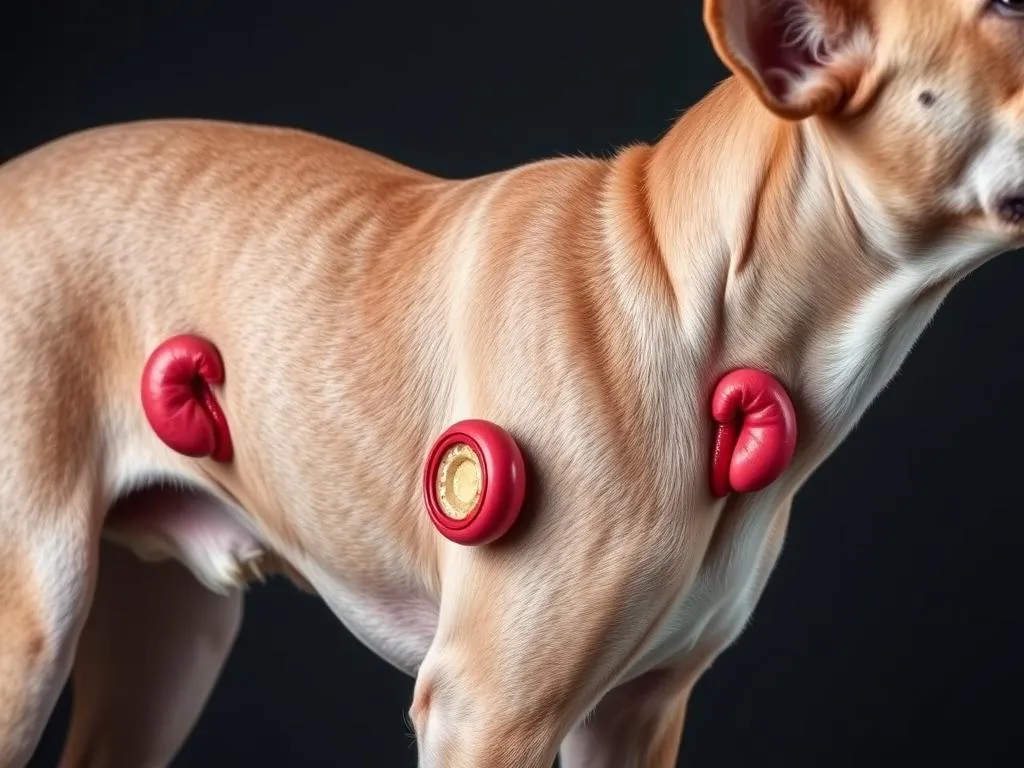
Introduction
Ectopic ureters in dogs is a condition that can significantly impact a pet’s quality of life. Understanding what ectopic ureters are and how they affect dogs is crucial for pet owners who want to ensure their furry friends remain healthy and happy. This article will explore the definition, symptoms, diagnosis, treatment options, and long-term management of ectopic ureters, providing pet owners with the knowledge they need to recognize and address this condition.
Understanding Ectopic Ureters
Definition of Ectopic Ureters
Ectopic ureters are abnormal ureters that do not connect to the bladder in the usual manner. Instead of entering the bladder, these ureters may drain into the urethra, vagina, or even the uterus, leading to various complications. In contrast, normal ureters transport urine from the kidneys directly to the bladder. The improper placement of one or both ureters can cause significant issues, including incontinence and recurrent urinary tract infections.
Types of Ectopic Ureters
There are two main types of ectopic ureters:
- Unilateral Ectopic Ureters: This occurs when one ureter is misplaced, leading to issues primarily on one side of the body.
- Bilateral Ectopic Ureters: In this case, both ureters are incorrectly positioned, which can result in more severe symptoms and complications.
Additionally, the anatomical location of ectopic ureters can vary. They may drain into the urethra or, less commonly, into the vagina or other structures, depending on the individual dog’s anatomy.
Causes of Ectopic Ureters
The development of ectopic ureters is often associated with several factors:
- Genetic Predisposition: Certain breeds are more prone to this condition, indicating a possible hereditary component.
- Congenital Abnormalities: Ectopic ureters are often present at birth due to improper development during fetal growth.
- Other Contributing Factors: Infections or other medical conditions might exacerbate the situation, but primary causes are typically anatomical.
Symptoms of Ectopic Ureters in Dogs
Common Symptoms
Pet owners should be vigilant for the following symptoms, which may suggest the presence of ectopic ureters:
- Frequent Urination: Dogs may urinate more often than usual, even if they are not drinking excessive amounts of water.
- Incontinence Issues: Accidental urination, especially during sleep or excitement, is a common sign.
- Abnormal Urine Stream: An unusual or weak urine stream may indicate improper ureter placement.
Behavioral Changes
In addition to physical symptoms, dogs with ectopic ureters may exhibit behavioral changes, including:
- Signs of Discomfort or Pain: If your dog seems restless, whines when urinating, or shows signs of distress, it could indicate an underlying issue.
- Changes in Activity Levels: Dogs may become less active or playful if they are experiencing discomfort.
Diagnosis of Symptoms
Early detection of symptoms related to ectopic ureters is critical for effective treatment. If you notice any of the aforementioned signs, it’s essential to consult a veterinarian promptly. Delaying diagnosis can lead to further complications, including urinary tract infections and kidney damage.
Diagnosis of Ectopic Ureters
Veterinary Examination
A thorough veterinary examination begins with a physical check-up and a detailed medical history. The veterinarian will assess your dog’s overall health and inquire about the symptoms you’ve observed. This information is vital for accurate diagnosis.
Diagnostic Tests
Several diagnostic tests may be employed to confirm the presence of ectopic ureters:
- Ultrasound and X-rays: These imaging techniques help visualize the urinary tract and check for abnormalities.
- Contrast Studies and Cystoscopy: A contrast study may be conducted to highlight the ureters, while cystoscopy allows direct visualization of the urethra and bladder.
- Blood Work and Urinalysis: These tests can help identify underlying infections or kidney issues.
Differential Diagnosis
It is crucial to rule out other conditions that may mimic the symptoms of ectopic ureters. Conditions such as urinary tract infections, bladder stones, or other anatomical abnormalities must be considered. Proper diagnosis ensures that the right treatment plan is implemented.
Treatment Options for Ectopic Ureters
Surgical Intervention
Surgical correction is often the most effective treatment for ectopic ureters. The surgical techniques used include:
- Ureteroneocystostomy: This procedure involves re-implanting the ureter into the bladder at its normal position.
- Ureteral Reimplantation: Involves repositioning the ureter to ensure proper drainage.
The success rates for these surgical interventions are generally high, but potential complications such as infections or urinary tract issues can occur. Discussing these risks with your veterinarian is essential.
Medical Management
In cases where surgery is not an option or if the dog is not a candidate for surgery, medical management may help alleviate symptoms. This can include:
- Medications: Certain medications may help manage symptoms or control infections.
- Behavioral Therapy Options: Training techniques may assist in reducing accidents in the home environment.
Post-operative Care
Post-operative care is crucial for recovery after surgery for ectopic ureters. Care tips include:
- Monitoring for Complications: Watch for signs of infection or complications such as excessive bleeding.
- Limiting Activity: Restrict your dog’s movement to allow for proper healing.
- Follow-up Vet Visits: Regular check-ups will help ensure successful recovery and monitor for any complications.
Prognosis and Long-term Management
Expected Outcomes
The prognosis for dogs with ectopic ureters largely depends on the severity of the condition and the success of the treatment. Many dogs experience significant improvement in their quality of life after surgery, with a high success rate for correcting the issue.
Long-term Health Considerations
Even after successful treatment, some dogs may be susceptible to:
- Potential for Urinary Tract Infections: Due to previous malformation, ongoing vigilance is required.
- Ongoing Monitoring for Recurrence: Regular veterinary check-ups will help monitor for any recurrence of symptoms or complications.
Lifestyle Adjustments for Affected Dogs
Making certain lifestyle adjustments can aid in the long-term management of dogs with a history of ectopic ureters:
- Dietary Changes: A balanced diet can help maintain urinary health.
- Importance of Regular Vet Check-ups: Consistent monitoring will help catch any issues early and ensure ongoing health.
Frequently Asked Questions (FAQs)
Can ectopic ureters be inherited?
Yes, certain breeds exhibit a genetic predisposition to developing ectopic ureters. It’s important to consult with breeders and veterinarians when selecting a puppy, particularly if the breed is known for this condition.
What breeds are more prone to ectopic ureters?
Some breeds, such as Labrador Retrievers, Golden Retrievers, and Siberian Huskies, are known to be more susceptible to ectopic ureters. Awareness of breed tendencies can assist in early detection and intervention.
How can I prevent complications?
Preventing complications involves regular veterinary check-ups, maintaining a healthy diet, ensuring proper hydration, and observing your dog for any signs of urinary distress or infection.
What should I do if I suspect my dog has an ectopic ureter?
If you suspect your dog has ectopic ureters, consult a veterinarian immediately. Early diagnosis and intervention can significantly affect the outcome and quality of life for your pet.
Conclusion
Awareness and understanding of ectopic ureters in dogs are vital for all pet owners. Recognizing the symptoms and seeking timely veterinary care can lead to successful treatment and a better quality of life for affected dogs. Regular check-ups and proactive health management are essential for maintaining your pet’s well-being. By staying informed and attentive, you can ensure that your furry friend remains healthy and happy.









